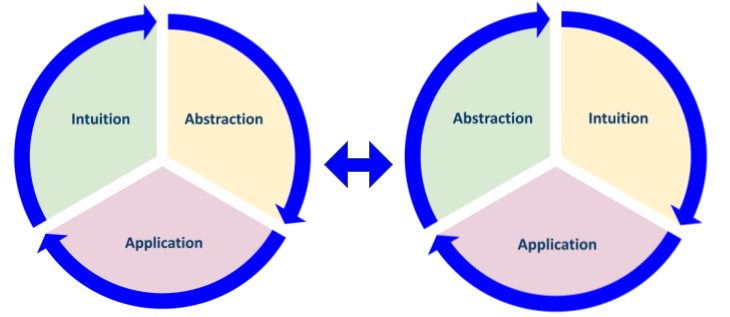Hey QF Community,
In today’s episode, we explore the advancements in AI for mathematics, focusing on the development and implications of tools designed for accurate mathematical problem-solving. It also highlights QF Academy's creation of an Advanced Maths GPT and the emergence of Harmonic's "Mathematical Superintelligence" chatbot, Aristotle, which utilises formal verification to ensure precision and combat AI hallucinations.
Harmonic is a new AI startup, co-founded by Robinhood founder Vlad Tenev and backed by prominent Silicon Valley VCs including Sequoia Capital.
What makes Harmonic's approach particularly interesting and novel from our perspective is their use of formal verification methods to check the correctness of answers before presenting them to users. This is an interesting approach for the following reasons:
Mathematical Precision Demands Zero Tolerance for Error: Unlike general conversational AI where approximate answers might suffice, mathematics requires absolute accuracy. A single computational error or logical misstep can invalidate an entire solution. Formal verification acts as an automated proof checker, ensuring that every mathematical statement presented to users has been rigorously validated against established mathematical principles.
Addressing the AI Hallucination Problem: Large language models frequently generate convincing but mathematically incorrect reasoning. This phenomenon is particularly dangerous in educational contexts where students may internalise false information. By implementing formal verification as a mandatory checkpoint, Harmonic potentially eliminates the confident presentation of wrong answers that has plagued AI mathematics tools.
Building Educational Trust: For impact-driven programmes such as QF Academy, reliability isn't just beneficial. It's fundamental to our educational mission. Students building their mathematical foundations need to trust that their AI tutors won't mislead them. Formal verification could transform AI assisted learning by ensuring every explanation, proof step, and calculation has been systematically validated.
We have signed up for their beta testing program and will share our experience. We're also establishing a team at QF Academy to benchmark LLMs against problems assigned to our students. This is crucial for adapting our assignments to prevent students from simply using LLMs to complete their work.
While we encourage students to use LLMs such as our GPT to clarify abstract mathematical concepts, we don't accept LLM-generated solutions for assignments. Our goal is to develop students' critical mathematical thinking rather than having them outsource problem-solving, which would undermine their mathematical understanding.
QF Software Verification Course
Back in 2023, we delivered a course on Software Verification using Lean, the same formal verification system that Harmonic now employs to verify their model answers. You can explore the course materials in our repository at https://github.com/quantumformalism/software-verification.
Notably, one of Harmonic's key technical staff members enrolled in this course around the time Harmonic was being founded. We're naturally proud to see researchers apply knowledge gained through our educational programs to help contribute to the development of innovative solutions that advance the field of mathematical AI.
This has inspired us to develop a new curriculum on formal methods for LLMs. We'll be announcing details soon!
About Our Pod & a Quick Disclaimer
This is an experimental pod that leverages AI narration with the script written by humans. Of course, the narration occasionally goes off track due to technical nuances and LLM hallucinations. However, most of the time, it gets the technical content right.
Episode References/Credits
This episode draws on internal materials from our team, along with the following carefully curated open-access resources:
About QF Academy
Contrary to the popular myth, mathematicians are not born, they are made. Just like bodybuilding, building mathematical strength takes dedication, consistency, and the right training environment. With the right guidance and support, you can go from hesitant to highly capable.
In fact, many great mathematicians struggled with mathematics in high school and only began to excel when they encountered university-level mathematics. This is because traditional high school education often relies heavily on memorising formulas, rather than focusing on first principles and the axiomatic approach that is emphasized at advanced levels.
What makes us different:
PhD-Level Rigour: Learn to think like mathematician with proof-based approaches to foundational topics such as linear algebra, differential equations, functional analysis, and differential geometry (modern approach)
Real-World Applications: Connect abstract theories directly to quantum computing, machine learning algorithms, and other emerging technologies
Outcomes Guarantee: we are the only e-learning platform that offers a 'Learn, Succeed, or Get Refunded' policy for anyone who completes one of our specialisation courses
We will guide you from your current level to the point where you can confidently develop the following mental framework:
You can start your mathematical transformation today by joining Quantum Formalism (QF) Academy to master advanced mathematical topics that will set you apart in AI and Quantum Computing. Choose from our Standard Plans or explore the newly introduced Flexible Bundles for greater flexibility.
Happy weekend!
QF Academy team










Share this post